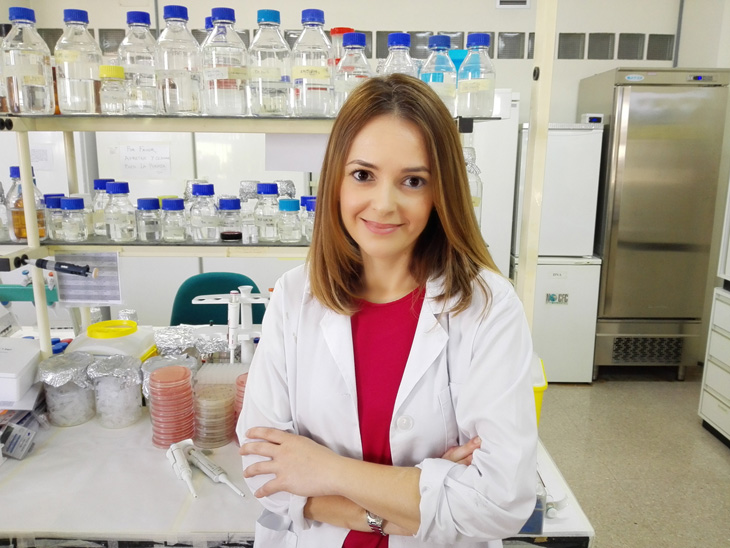Biography
Marisa Madrid was born in Torre-Pacheco on April 29, 1978. Her undergraduate studies were done in Biology, and she got her degree from the University of Murcia in 2001. She obtained a European PhD degree in Molecular Biology and Biotechnology by the University of Murcia in 2007, which was possible thanks to a FPU Fellowship from the Spanish Government.
From 2008 to 2011, she served as postdoc in Iain Hagan's lab at the Paterson Institute for Cancer Research in Manchester (UK) with the support of an EMBO Long-Term Postdoctoral Fellowship.
She joined the E026-01 Microbial Physiology group at the University of Murcia in 2011 as recipient of a Juan de la Cierva Fellowship. Since 2014 she is the principal investigator of a project (18976/JLI/13) focused in analysing functional interactions between signalling pathways involved in the cellular adaptation to the stress imposed by antifungal drugs.
Research interests
Cancer is a disease of uncontrolled cell proliferation and because cancer cells inappropriately colonise parts of the body, they are in the wrong context and are invariably more stressed than normal tissues. Therefore changes in stress response signalling are linked to cancer and are often altered in human tumours. In eukaryote cells the signal transduction pathways involving MAP kinases are key players in the regulation of cell adaptation and survival under sub-optimal growth conditions and consequently they are highly evolutionary conserved. This conservation allow us to use fission yeast Schizosaccharomyces pombe in order to decipher the complexity of MAPK signaling under adverse physiological conditions with a very simple model organism with powerful genetics and cellular biology.
Our main research interest focus on characterising the means by which external cues induce the activation of MAPK signaling pathways precisely in time and space, using a wide range of contemporary molecular cell biology, biochemical and bio-imaging techniques.
We are also interested in how intracellular signaling transduces cellular contextual information to the molecular machinery involved in the regulation of autophagy. Macroautophagy/autophagy is a crucial physiological response in eukaryotes induced under stress conditions, such as nutrient starvation, in which various cellular components are degraded to basic macromolecules and returned to the cytoplasm for reuse. Deregulation of autophagy has been implicated in the development of several human pathologies, including cancer and neurological disorders. Therefore, a detailed understanding of how the autophagic process is specifically regulated in response to different stimuli is essential to develop therapeutic strategies to inhibit or induce autophagy, tailored according to the cellular context.
Research Profiles
Expertise related to UN Sustainable Development Goals
- inicio.txt
- Última modificación: 2023/11/08 15:54
- por marisa@um.es

